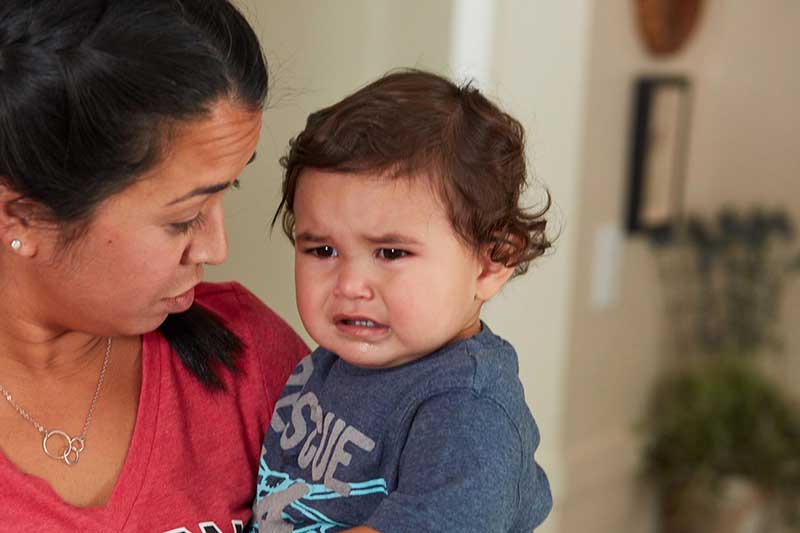How to Help Kids Manage Big Feelings
One of the greatest gifts a parent can give a child is the ability to handle intense emotions—disappointment, sadness, anger, fear, excitement, happiness—in healthy ways. Whether dealing with a major life change (parental divorce, a move), a hurtful Facebook comment or a broken toy, kids can’t be told what to feel, but they can learn how to name and manage their feelings. Here’s how you, as a parent, can guide them.
In this article:
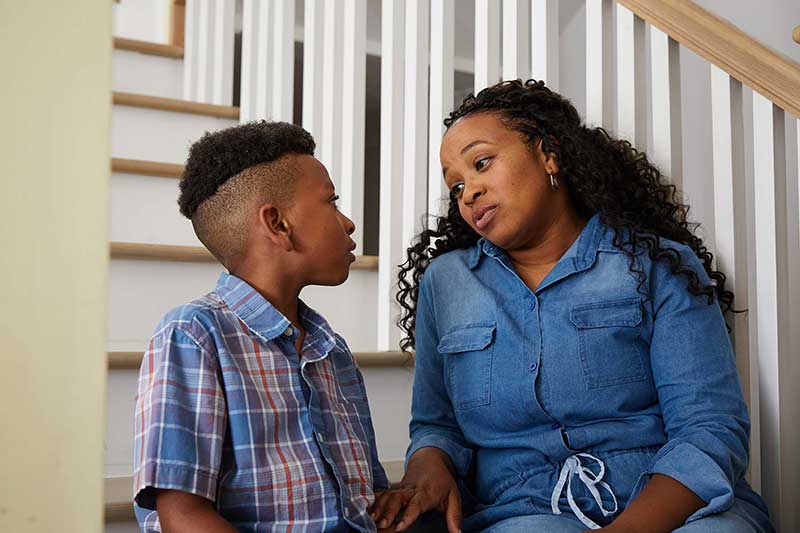
Set an example
The most important way to teach your child how to handle emotions is to be a good role model. “It’s unreasonable to ask a child to take some deep breaths and count to 10 if every time a parent is stressed and overwhelmed, they are yelling or slamming the door and walking out,” says Baumstein.
When you slip up, apologize and use it as a teaching moment. Say something like, “I’m sorry I lost my cool. I had a really hard day at work.” Be honest about your feelings and show how you cope: “I think I need to go for a run to help me calm down.”
Say sorry to other family members, too, in front of your child. “Sometimes families experience conflict, and that’s OK as long as you show kids how to make up, admit wrongdoing and apologize,” says Hill.
-
Managing Big Emotions
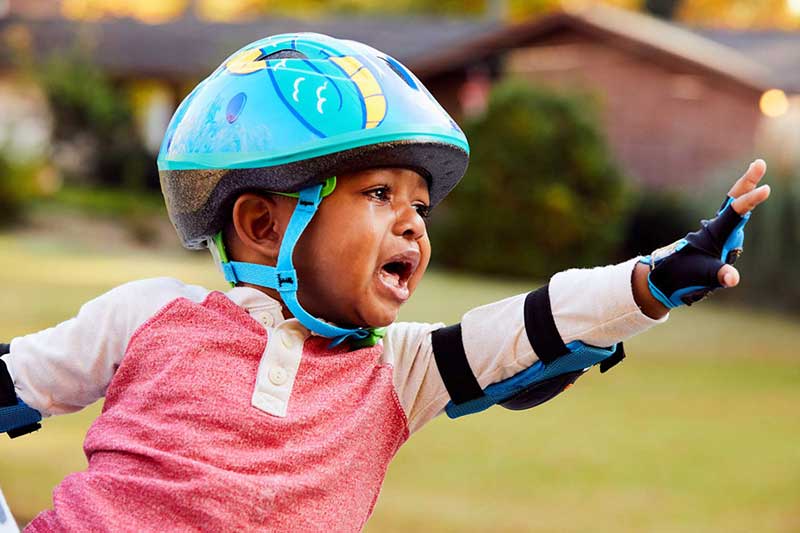
Toddlers and preschoolers: Don’t call it a tantrum
Your toddler’s screaming because they can’t wear their rain boots to bed. We’ve all been there. But what parents call “tantrums,” child development experts simply call “communication.”
“All they’re doing is communicating; they just don’t have the words to do it,” says Jody Baumstein, LCSW, a licensed therapist with Children’s Healthcare of Atlanta Strong4Life. “If you look at it as normal and you respond by teaching them what to do instead of scolding, they’re less likely to do it the next time.”
Stay calm, give your little one space, and use the words they can’t. For example: “I can tell you’re upset because I wouldn’t let you ride your scooter in the street. When you calm down, we can talk about what you can do instead.” When the screaming stops, thank your child for calming down and move on. You could also suggest age-appropriate coping skills, such as signing a song, counting to 5 or taking deep breaths.
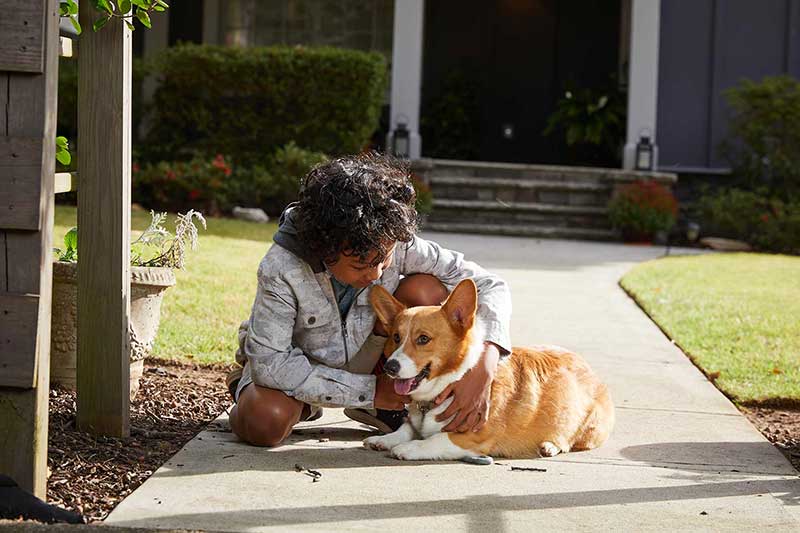
Older children: Make a coping skills list
Older kids and teens may have words to express their feelings, but they often choose not to use them. Instead, they might shut out the world and disappear into video games, act out in anger, vent on social media or even harm themselves.
Licensed therapist Kathleen Hill recommends making a list of healthy coping skills, hanging it on the fridge and talking to your child’s teachers about which strategies work well for them. The list should include coping methods such as:
- Do jumping jacks
- Go for a walk
- Do a puzzle
- Write a poem or journal entry
- Dance it out
- Paint
- Listen to music
- Read a book
- Cuddle with a pet
- Count to 10 or count backwards from 100
- Take deep, belly breaths
The specific ideas should fit your child’s personality, and the number of coping skills to choose from should match their age, suggests Hill (for example, have 3 options for a 3-year-old and 10 options for a 10-year-old). What works one day may not work the next, so a list will offer lots of different ideas.
Download a list of coping skills.
Download a journaling tip sheet.
Download a deep belly breathing tip sheet.
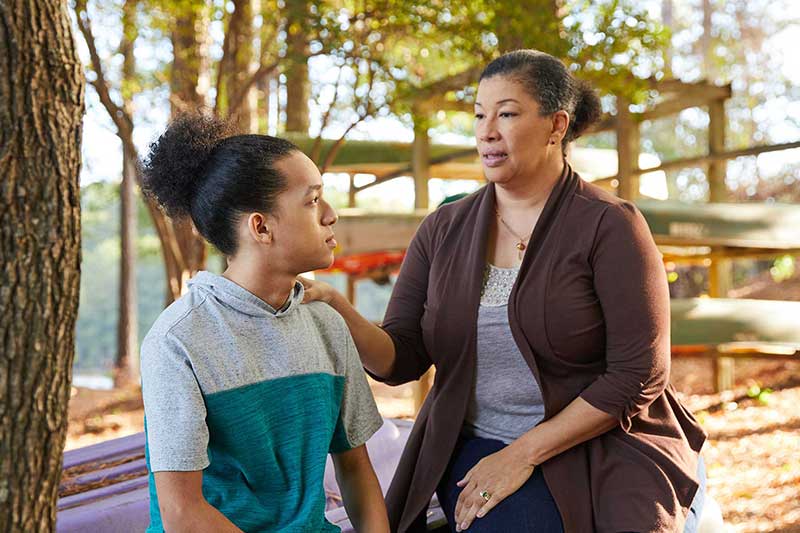
Be an active listener
When your child does want to talk, practice active listening. Put your phone down. Listen patiently, calmly and without judgment (feelings happen!). Before you respond, show you were listening by repeating back what your child said: “Your classmates laughed when you got the wrong answer, and now you’re embarrassed.” Even if you don’t agree, let your child know that you hear what they're telling you. Do this consistently and your child will be more likely to come to you in the future.
